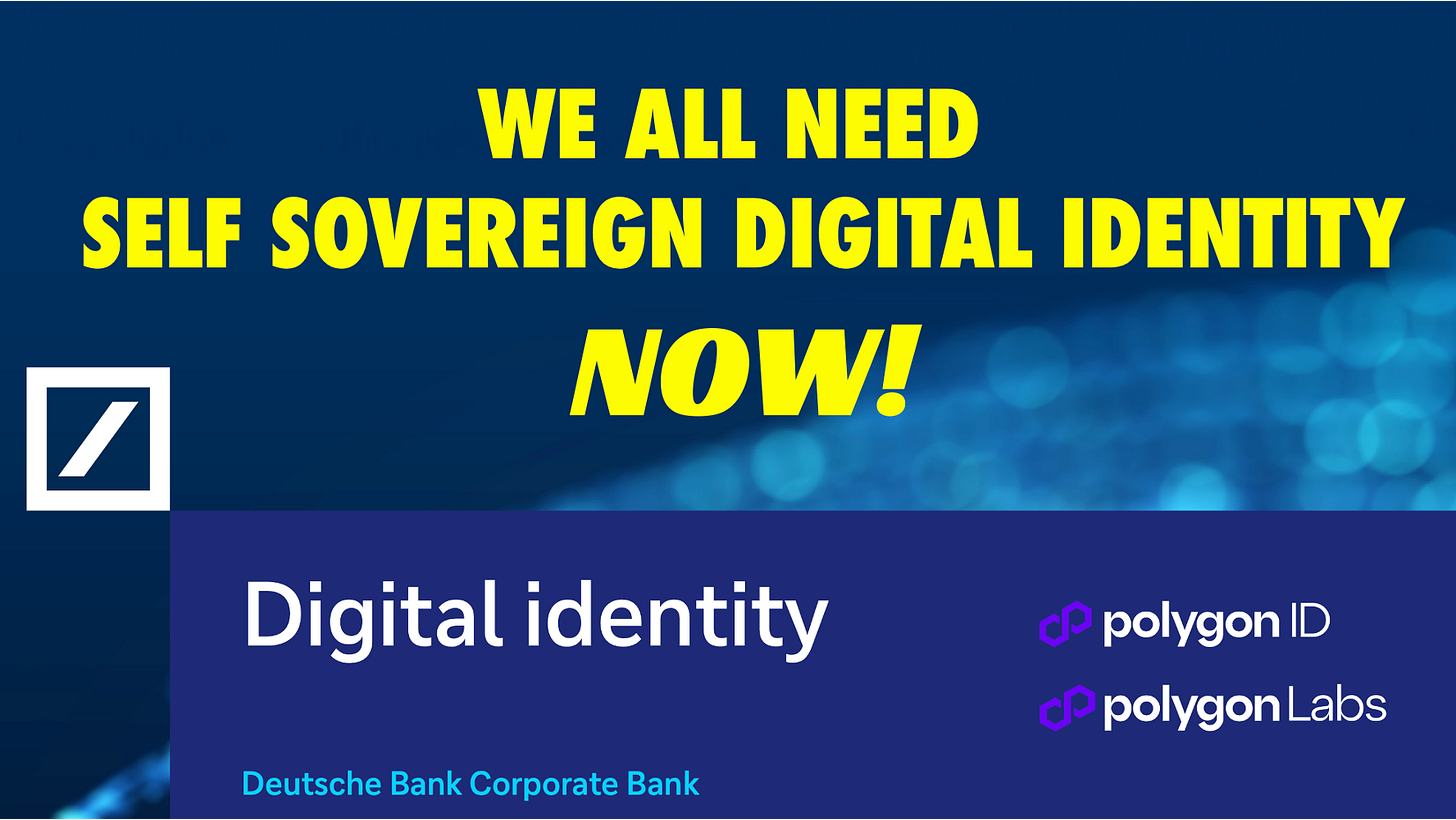“Self-Sovereign Digital IDs: Not the Future, But the Urgent Present!” 🚀
You should own and manage your identity data, not big tech.
Banks have a key role in digital ID (DID). Digital currency, CBDC or other, will not fly effortlessly across borders, and the metaverse will be like a zoo without an improved digital ID system.
Deutsche Bank does a great job explaining “self-sovereign identity” (SSI) and their POC. What is key is that with SSI, you own and manage your identity data, not big tech.
To make SSI real, understand that Europe’s new digital ID, which is currently in trial, includes SSI capabilities and will someday give end users control over identifying information.
While SSI may have been born out of crypto, it is an idea with practical application, and banks should have jumped on their role as identity validators to reduce financial crime but didn’t.
👉TAKEAWAYS
The evolution of DID:
Phase 1: Centralized identity
Internet platforms resolved the identity challenge by granting their users an identity through an account and a password. Centralized identity remains a de facto standard on most websites.
Phase 2: Federated identity
Prompted by password overload, a more user-friendly solution emerged, federated identity: “if Facebook/Meta trusts you, so can I – at the very least you are probably not a robot”. Your ID is still controlled by big tech!
Phase 3: Decentralised/self-sovereign identity
Self-sovereign identity, which enables identity holders to manage their own digital identities. Rather than storing an identity holder’s data remotely at a federated identity provider, its digital identity is kept as cryptographically secured credentials inside a personal wallet. This is the future and is needed from Web3 to CBDCs!
👊STRAIGHT TALK👊
The number one issue impacting digital ID adoption is the “network effect.”
Making an ID system work without use cases that mandate a digital ID is difficult. This is where the government and crypto depart philosophically.
Crypto purists believe in SSI without government intervention, while governments like the European Union believe that they should drive the process.
The schism is large, and I side with the government, if only because it is the only way to guarantee network effects and validator participation.
Whichever route you take, it is clear that we need DIDs yesterday. The US lost some $43 billion to identity fraud in 2023, and while all of this may not be alleviated by DIDs, a big part would.
Imagine what a mess CBDC, Web3, and the Metaverse will be without it!
Banks lacked vision by not jumping on providing digital ID services and “attestations” or validation of identity long ago. It should have been seen as a new business but they just never went for it. I suppose liability made it too hot to handle?
It is in banks’ best interests to fight financial fraud, and I have called for collaboration between crypto and banks for years.
I’m glad Deutsche and Polygon ID are working together. We all needed SSIs yesterday!
What do you think?
Share this article with friends, on social media, or substack. Try it! It’s the nicest way to say thanks!
For all those who have shared Cashless, you have my special thanks!
Joining our community by subscribing. It will be an exciting journey down the rabbit hole to our future and you’ll be glad you did!
Sponsor Cashless and reach a targeted audience of over 50,000 fintech and CBDC aficionados who would love to know more about what you do!






